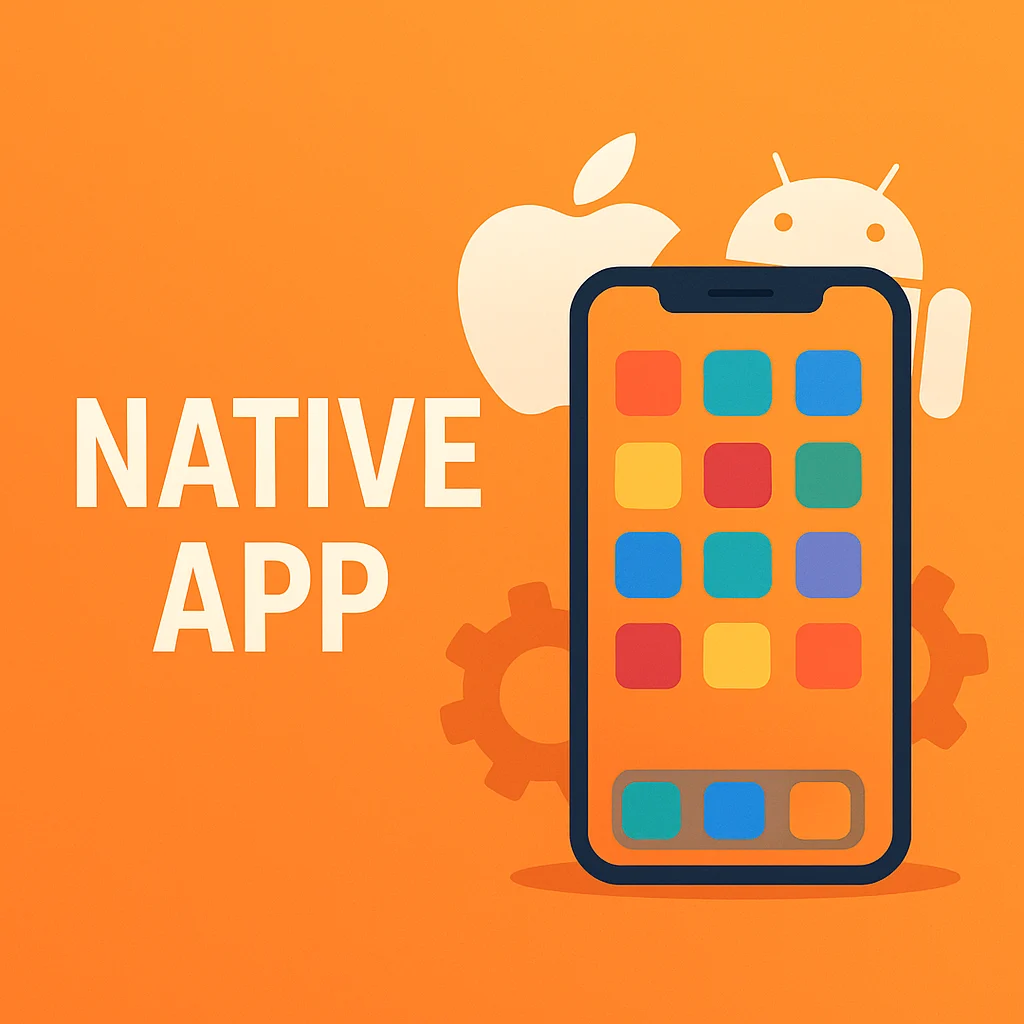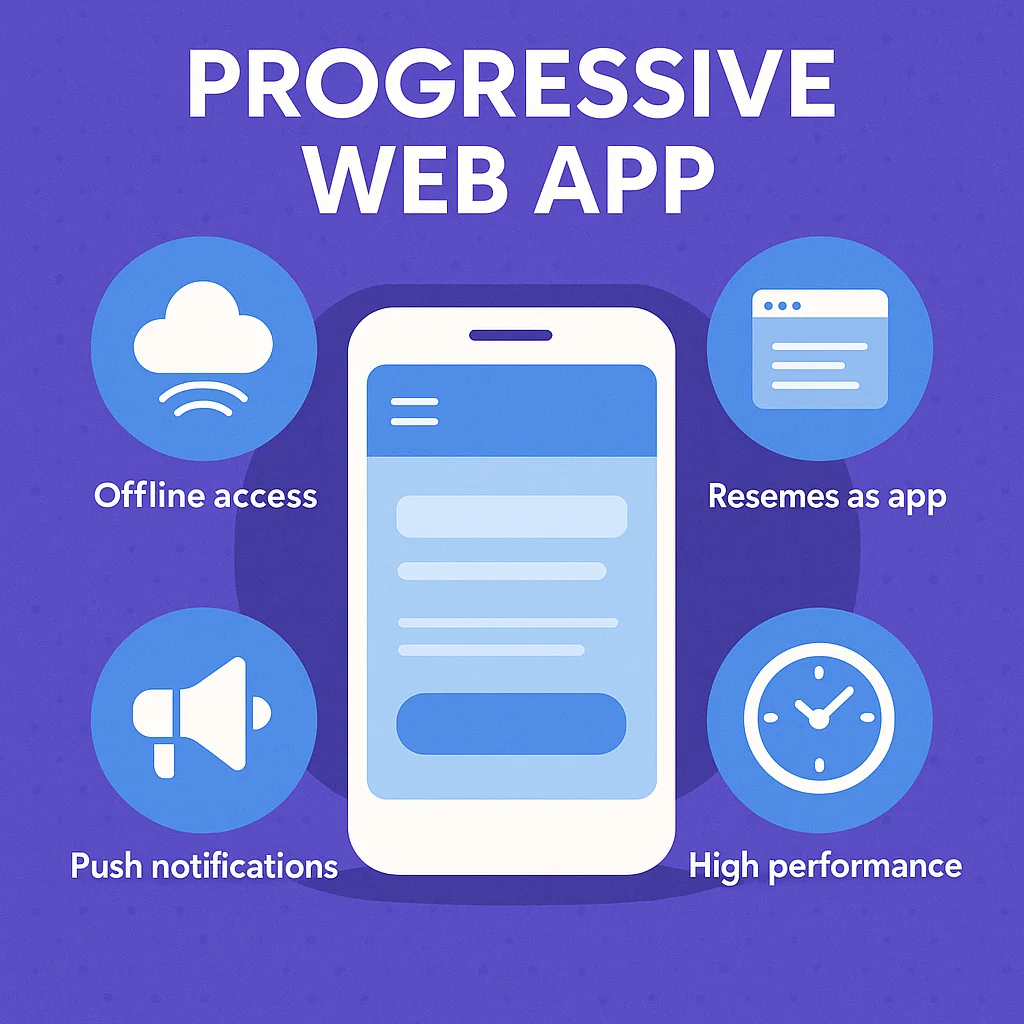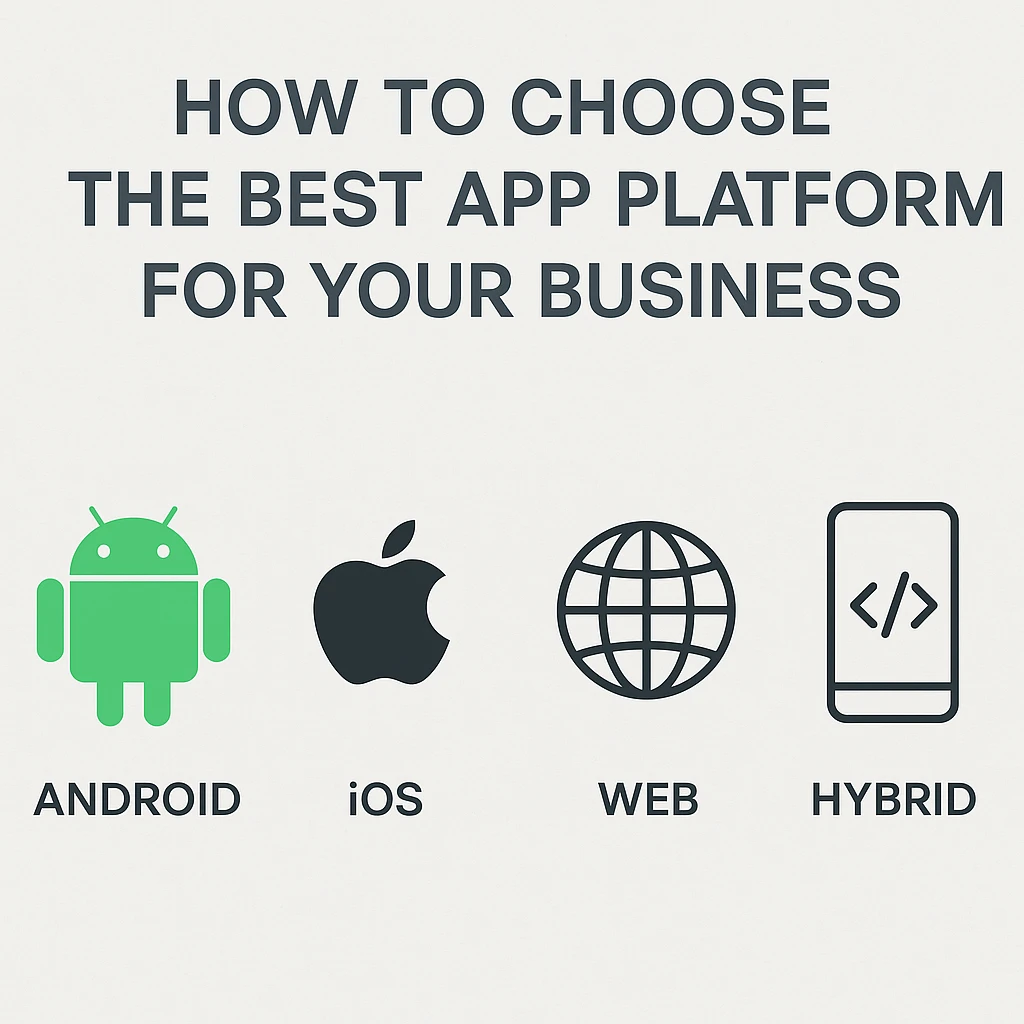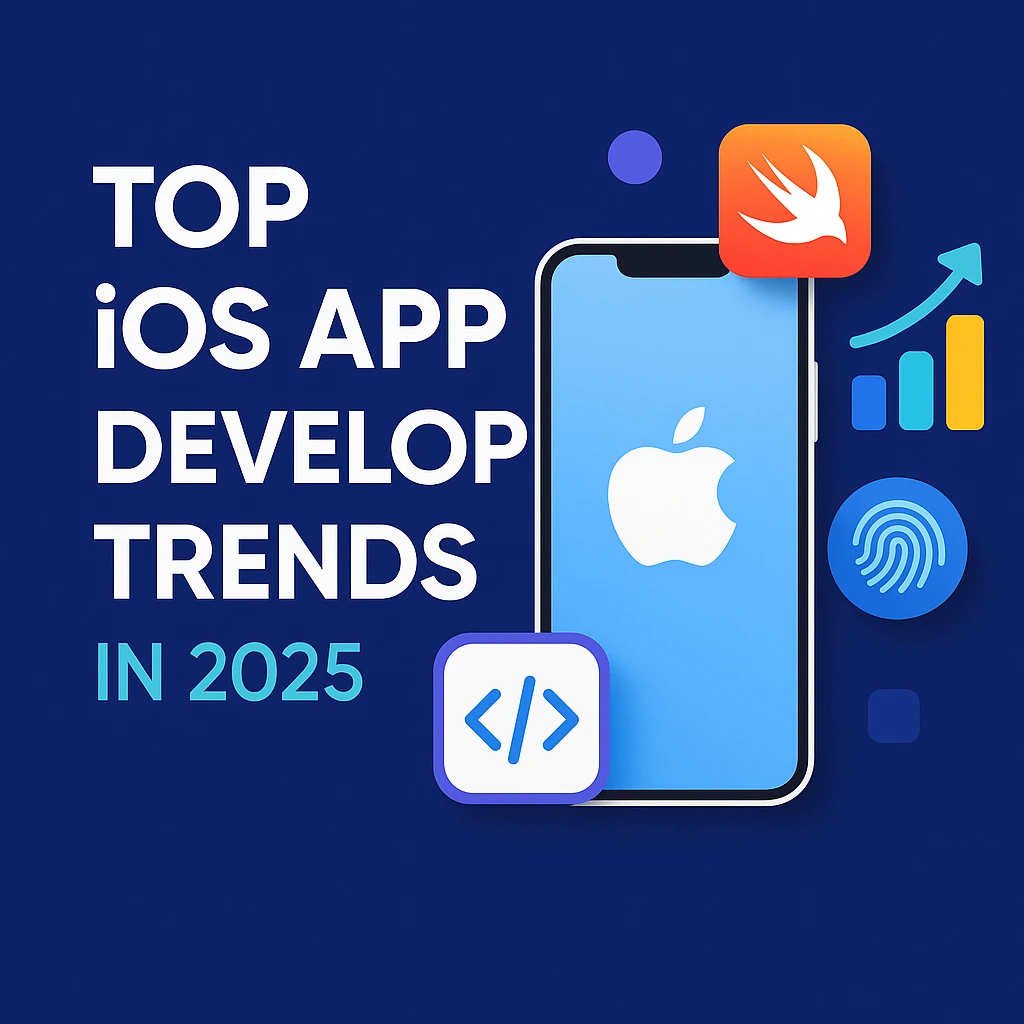In this mobile centric world, businesses are constantly seeking the ways to engage with the users effectively. With the active use of billions of mobile applications, developing the right mobile app strategy has never been more critical. Among the various types of applications, native apps emerged as the golden standard for businesses seeking enhanced user engagement. Exactly what is native apps? And why should businesses consider it. This guide will explore the native apps definition, fundamentals, advantages and strategic value of native apps to help you make informed decisions for your mobile strategy.
What Is a Native App? (Native Apps Definition)
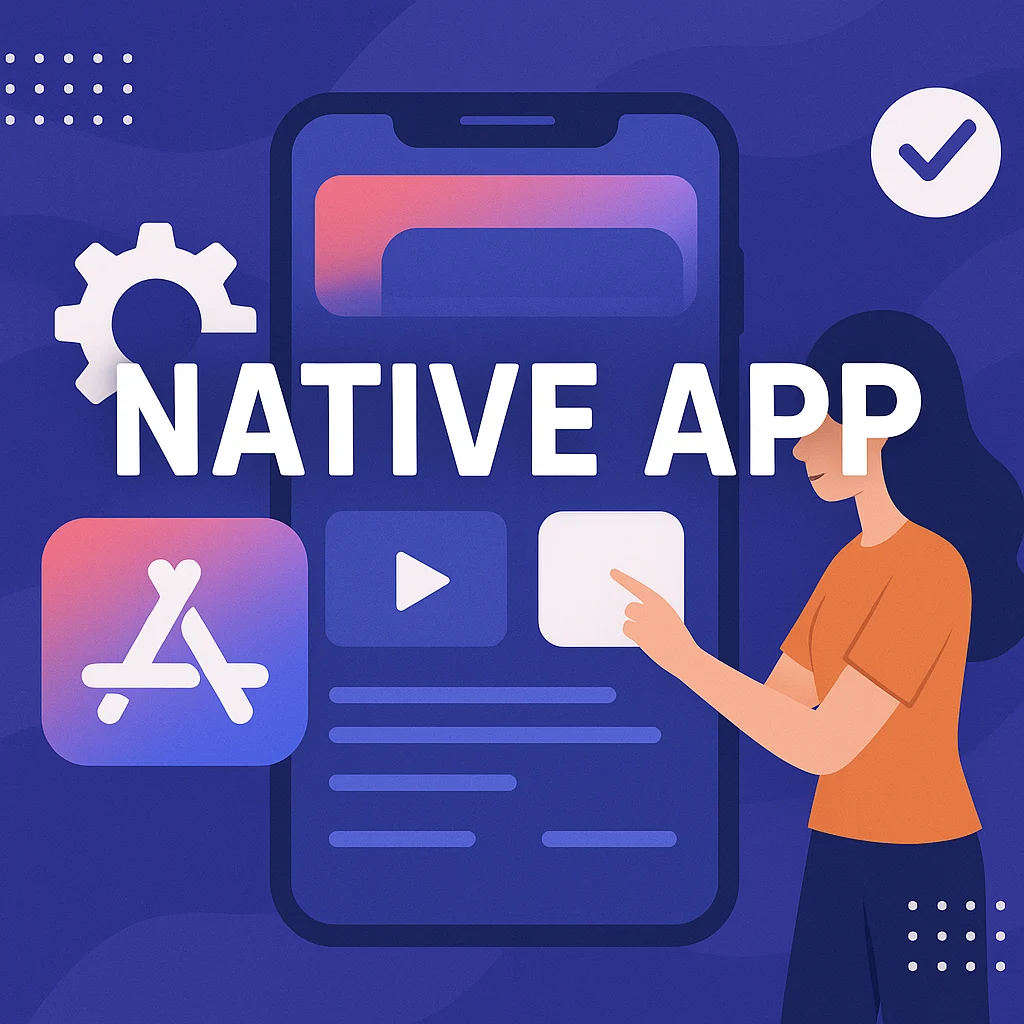
A native apps are specifically developed for a particular operating system, such as iOS or Android. The apps are built using the platform specific programming language and development programmes. The native definition highlights the apps performance, security and full hardware access. Installed directly on the device, native apps are tightly integrated with the operating system, offering fast and interactive experiences. Unlike other mobile applications, they are optimized for performance, making them ideal for businesses seeking reliable and responsive mobile solutions.
Key Features of Native Apps and the Technology Stack
The distinctive features of Native apps make it a preferred choice for high performing mobile applications:
- Platform Specific Design and Optimization: Developed with the OS in mind, ensuring smooth navigation and responsive design.
- High Performance: Optimized for speed, reliability and efficiency and minimizing lag or crashes.
- Offline Functionality: Many native apps can operate without internet access, supporting uninterrupted user experiences.
- Access to Device Features: Full integration with hardware components like camera, GPS, microphone, sensors and push notifications.
- App Store Distribution: To ensure secure deployment and updates. It’s available through Apple App Store and Google.
Advantages of Native Apps: Why They Offer Superior Performance and UX
The advantages of Native apps in several areas are directly enhance user engagement and satisfaction:
- Superior User Experience (UX): Higher load speeds, easier navigation and more intuitive designs.
- Enhanced Performance: The device is fully optimized with the operating system and provides reliable responsive behaviour.
- Full Access to Hardware Capabilities: Native applications can access hardware capabilities like GPS positioning, biometric authentication and accelerators, providing enhanced functionality.
- Better Security: The security integration with device level security features secures the user data.
- Better User Interaction: Push notifications and smooth interaction make the users active.
Examples of Native Apps Driving High Performance
Some of the most successful apps leverage native features to deliver superior experiences:
- Instagram: Uses camera, GPS and push notifications to enhance social interaction.
- WhatsApp: Integrates contacts, camera and notifications for fast and reliable messaging.
- Spotify: Provides high quality audio streaming with offline playback using native device access.
- Pokemon GO: Relies heavily on GPS and camera for augmented reality gameplay.
- Google Maps: Offers real time navigation and location tracking through native integration.
Weighing the Investment: Disadvantages of Native Development
While native apps provide excellent performance, there are trade offs:
- Higher Development Costs: Separate versions are needed for iOS and Android.
- Maintenance and Updates: All platforms need continual updates as opposed to web applications, which update in a central location.
- App Store Approval Process: App stores can lead to delays in their vetting.
- Platform Dependency: By using a single platform, you limit the reach of your app.
- Fragmentation of Platforms: It may be difficult to be compatible with a variety of devices and operating systems versions, in particular, Android.
Native Apps vs. Web Apps vs. Hybrid Apps: Understanding the Differences
- Web Apps: They have restricted access to device functionalities, run in a browser, and need an internet connection.
- Native Apps: Installed on the device, fully integrated with OS and optimized for superior UX and performance.
- Hybrid Apps: Use a native container to host web code, offering reduced development time but often slower performance and limited offline functionality. learn our blog about what is a hybrid app.
Choosing between native vs web app mobile app development technologies depends on your business goals, budget and user expectations.
Conclusion: Is Native App Development Right for Your Business?
Native apps harness the full potential of device features to deliver a high-performing, secure and customized user experience. They are the best choice for businesses that require superior performance, offline capabilities and deep hardware integration. However, considerations like target audience, budget and platform requirements are crucial in deciding your mobile app development strategy. For expert guidance and personalised solutions, consult with a professional app development company like Emedia Infosoft, recognized for delivering best mobile app development. Make an informed choice to maximize your native app development strategy and business potential.
Ravikant
I am Ravi Kant, the Business Head at Emedia Infosoft an Apps Development Company. With over 12 years of experience in mobile app development, I specialize in creating powerful and scalable solutions tailored to modern business needs. My expertise includes Android and iOS app development, cross-platform solutions, UX/UI strategy, agile project management, and business consulting. Over the years, I have led and delivered custom app solutions across various industries, with a strong focus on mobile app development in Gwalior and across India. I believe mobile technology can transform the way businesses operate, and I am passionate about making that transformation seamless and scalable. I am committed to helping businesses grow by harnessing the true potential of mobile technology.
